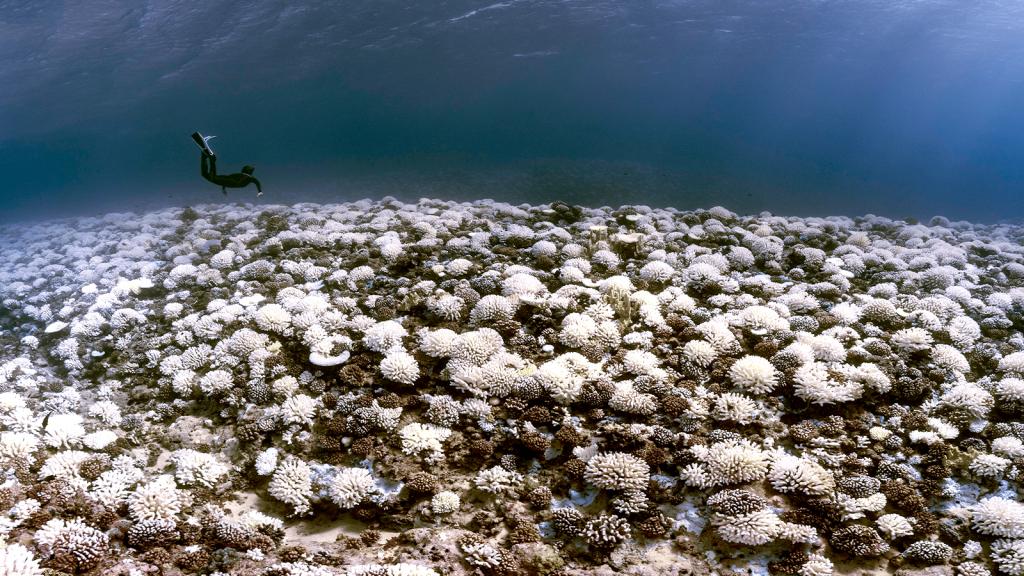My very favorite piece of punditry about the Keystone XL pipeline appeared the day after President Obama sent it back for more review, perhaps killing it off altogether.
It came from the pen of a senior fellow of the Council on Foreign Relations named Michael Levi, who had spent the last few months endlessly opining about why the pipeline should be approved. Proven conclusively wrong, his sour-grapes op-ed explained that, in fact, environmentalists had damaged the cause of clean energy because they’d joined with Nebraska ranchers “who simply did not want a pipeline running through their backyards” to defeat the plan. By embracing such NIMBYism, he lamented, we’d made it easier to block transmission lines from solar power plants in the desert and other green infrastructure.
The argument is absurd on its face — one should embrace the dirtiest energy on the planet so that someday down the road we’ll be able to build some green stuff? It’s like saying you should guzzle bacon grease for breakfast to make sure your throat is open so you can eat sprouts for lunch. But more importantly, it’s a slur on the people who fought this fight, in Nebraska and elsewhere — it imagines that people out there beyond the Council on Foreign Relations are somehow unable to think generously about the world.
Take those Nebraska ranchers, for instance: They were absolutely vital to the pipeline victory. By turning red Nebraska green on this issue, they gave the administration the cover it needed to act. It was a real feat to force the state’s governor and Republican senator to come out against the pipeline, something only powerful organizing could have accomplished. And of course they were protective of their place — they stood up for the Sand Hills and for the Ogallala Aquifer, and why should they not? But they also stood up for the planet.
Jane Kleeb, who organized Bold Nebraska into a fighting force, made it clear at every turn that the president needed not just to reroute the pipeline but to shut it down, and that climate change was one of the reasons; there was no rift in the ranks. For the sake of completeness, here are the names of a few of the people Levi was disparaging, some of the organizers who carried the day in the Midwest: Randy Thompson, Malinda Frevert, Ken Winston, Ben Gotschall, Cindy Myers, Susan Luebbe, Bruce Boettcher, Ernie Fellows, John Hansen, Graham Christensen, Linda Buoy, Linda Duckworth, Mary Pipher, Pippa Lawson White, Teri Taylor, Mitch Paine. My guess is that every single one of them understands that their work is connected to people around the globe already suffering the effects of a warming planet; people may start out protecting what’s close to them, only to find it’s connected to everyone else.
And the Nebraskans weren’t even actually the first people to raise the cry. That honor goes to indigenous people around the continent, beginning with tribes whose land has been wrecked by tar-sands development, but extending out to most of the bands on both sides of the border. The very first people I called when I wanted to start working on the pipeline were Tom Goldtooth, leader of the Indigenous Environmental Network, and his dynamic assistant Clayton Thomas-Muller. Over the next few months they introduced me to dozens of their colleagues: John Steele and Tom Poorbear and Debra White Plume of the Oglala Sioux Nation; Bill Erasmus, grand chief of the Dene Nation; and Melina Lubicon Massimo, a young Cree organizer who managed to bring everyone she talked with to tears — she’d lost family members to the cancers now proliferating across tar-sands country. Adam Thomas, Rob Cee, Sharon Lungo, Kandi Mossett, Simon Reece, Nellis Kennedy, Winona LaDuke, Healther Milton Lightning, Marty Cobenais, Ben Powless — it’s a long list, filled with people every bit as expert as Levi (such as Pat Spears, of the Intertribal Council on Utility Policy), but their vision not confined to think-tank hallways.
Many of these folks had seen family members get sick and die, so yes, technically, they were worried about their “backyard.” But every one of them spoke with great power of the earth they’d watched the rest of us wreck. You really think Native Americans care only about the particular plot of land on which they live, and that they somehow don’t understand the way things connect? Meeting at the Rosebud Sioux reservation in mid-September, native leaders from around the continent reached a “Mother Earth accord” that began with the reaffirmation of “our Indigenous view that the Earth is our true mother, our grandmother who gives birth to us and maintains all life,” and concluded that the U.S. and Canada should “reduce their reliance on oil, including tar sands, and invest in the research and development of cleaner, safer forms of sustainable energy and transportation solutions, including smart growth, fuel efficiency, next-generation biofuels and electric vehicles powered by solar and wind energy.” The second statement might emerge from a progressive think tank somewhere; the first goes deeper. These people were not describing their “backyard,” some suburban accessory for pleasant weekend living. They were talking about their home, and ours.
We won no final victories by beating this pipeline — there are no permanent victories in the environmental business. And we have much tougher battles ahead, not just to block things but to force the energy industry off fossil fuels and on to something else.
But that’s why it’s important to celebrate even partial wins: They help us build the resolve that we need to go forward. It makes me think it’s time for a new acronym to replace the absurd NIMBY, one that could be shared by the Nebraska ranchers and native activists and the college students and the green groups and the religious leaders and the labor organizers and the myriad Occupiers and all the others who came together to block this pipeline and hopefully do much more in the years ahead — people who are, thank God, too busy looking out for the future to be intimidated by realpolitik mandarins at outfits like the Council on Foreign Relations.
Everyone from Tim DeChristopher speaking from jail to Robert Redford speaking from YouTube made it clear that this is a more united opposition than the oil companies are used to dealing with. An opposition that takes strength from small victories, and which should be starting to worry the fossil-fuel industry just a little bit.
So I think we need a new name. Faced with projects like tar-sands oil which carry the possibility of deeply damaging the earth’s support systems, we should take to calling ourselves NOOPs: Not On Our Planet.
And if I weren’t a Methodist Sunday School teacher, I fear I’d be tempted to add an A to the end. If you’re an oil company executive willing to keep altering the chemical composition of the earth’s atmosphere, or a coal baron who thinks it’s okay to remove mountaintops, or a gas tycoon eager to pollute both water and air in search of some fracked riches — NOOPA! Find yourself a spaceship.



